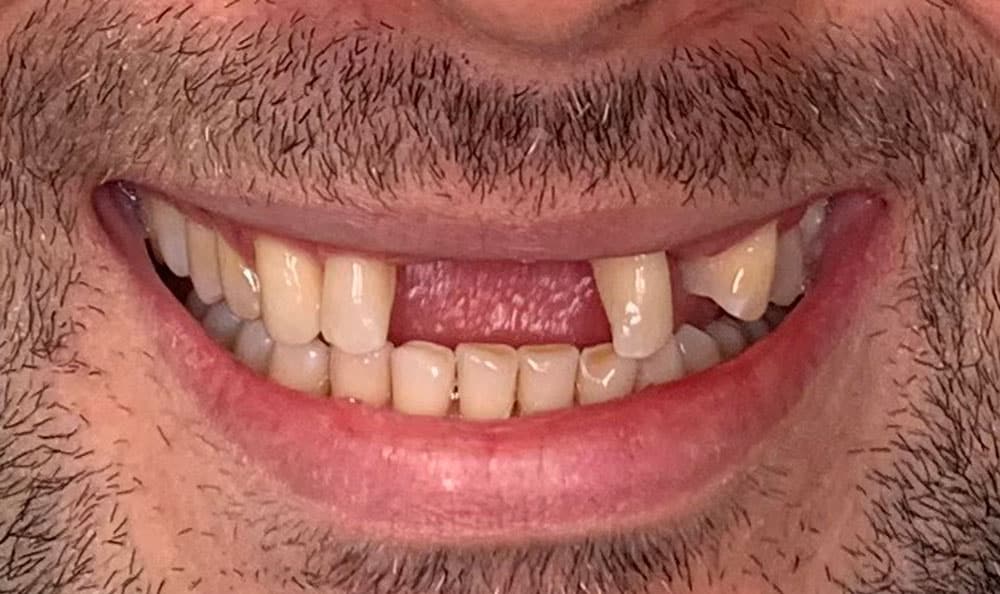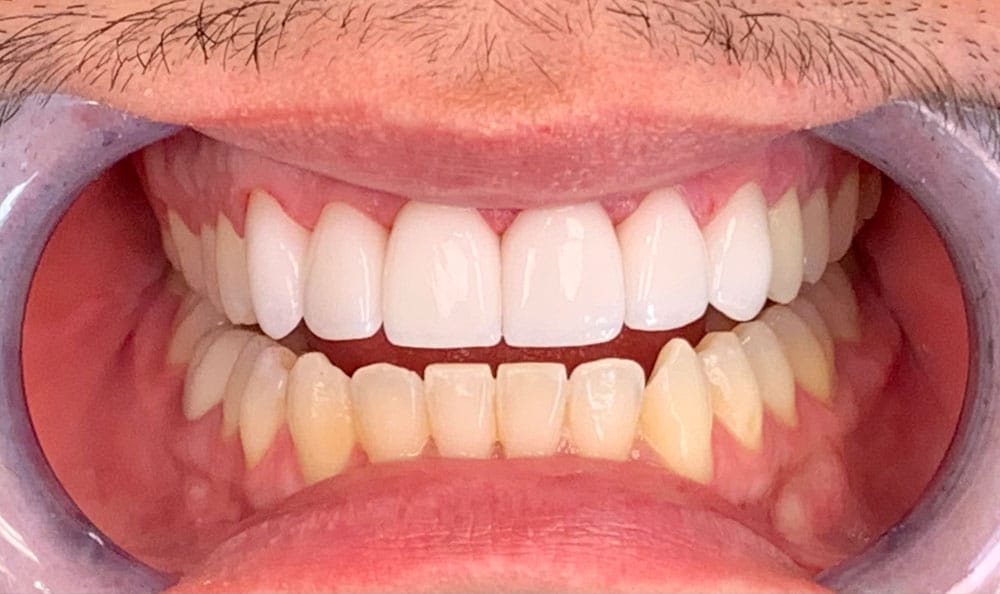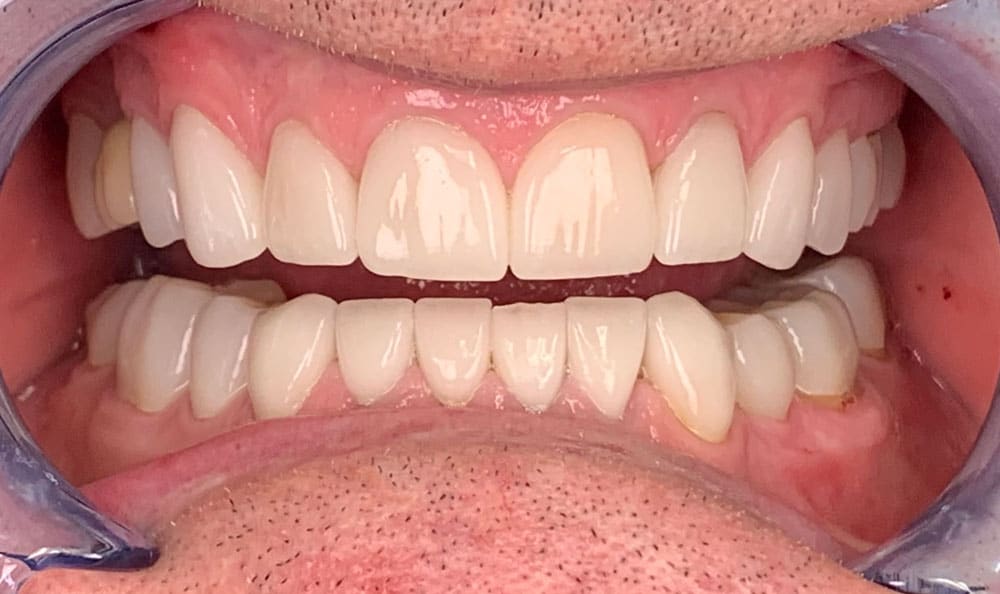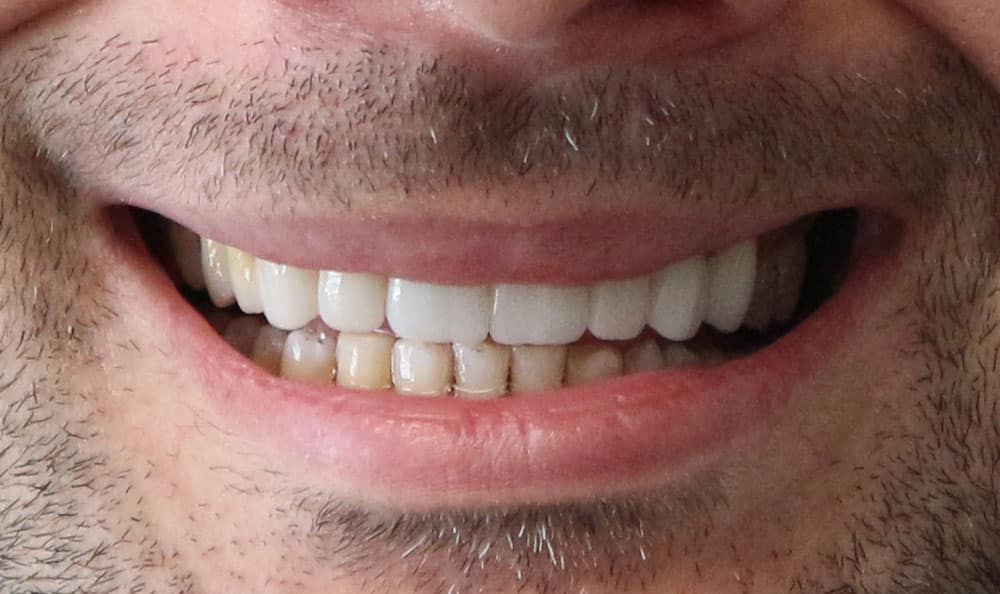Does your dentist recommend dental implants, and you’re anxious or overwhelmed because of all the other alternatives for dental treatment?
Consider yourself lucky because these dental implants are an easier option than other dental treatments. In this piece of content, you get to know about the different types of dental implants that your dentist may recommend to you during dental treatment.
Dental implants are created from pure titanium because of their small size, which fits into the bone easily under the gum and is precisely like regular tooth roots.
What Are Different Types of Dental Implants?
Endosteal, subperiosteal, and zygomatic are the most common types of dental implants that dentists suggest to you according to your oral health conditions. Let’s discuss them one by one in brief:-

Endosteal is often used in the initial stages, whereas subperiosteal is used in moderate conditions. Last but not least, zygomatic is considered the most complex dental implant as it is used only in severe conditions. Many dental clinics offer 24 Hour Dentist Near Me facilities for the convenience of their patients.
Endosteal Implants
Endosteal implants are often used in the initial stages and are placed directly through surgery into the jawbone. However, healthcare professionals suggest to most patients that they need a strong and healthy jawbone for this dental treatment. These implants look like small screws or cylinders that provide a strong and suitable base to bridges, dentures, and crowns. Many people prefer Dental Implants Near Me because of work and home accessibility.
Once the procedure is done, it takes some time to heal. Also, it takes a little to mix with other teeth and create a stronghold. Once recovered, the false teeth may be placed onto the post to fit in with the surrounding teeth.
Subperiosteal Implants
Endosteal Implants are the best option for patients with minimal jawbone height. Instead of being placed into the jawbone, these implants rest on top or above the jawbone but under the gu. Endosteal Implants are suggested only in certain conditions when the patient doesn’t have a strong jawbone for implants or when an individual does not want to deal with critical intense oral surgery to add bone into a specific area.

Zygomatic Implants
These implants are the most complicated and recommended only when a patient is experiencing severe bone loss in the upper jaw. These are placed into the cheekbone rather than the jawbone, ensuring stability for dental aesthetics and appearance.
If your oral health condition is severe and your jaw can’t support dental implants, your healthcare professional may suggest other techniques such as bone augmentation, sinus lift, ridge expansion, or any other dental treatment that suits your oral health issues. No worries about treatment costs because many dentists are offering flexible payment plans and accepting insurance policies, making Affordable Dental Implants.
Wrapping It Up
I hope that you find this post a useful resource for gathering or enhancing information about the various dental implants. Choosing the right implant depends on factors such as oral or overall health condition, what purpose to solve with this, and suggestions from your dentist or oral surgeon. If you’ve any severe issues or can’t wait till morning, contact Emergency DentistOpen 24 Hours Near Me.
Like other dental treatments, dentists often recommend dental implants with the intent to replace missing or modifying crooked or misaligning teeth that render a long-lasting and natural-looking solution. At the same time, they boost your confidence with an aesthetic and appealing smile.
Proper dental care and hygiene are vital for a healthy life and a beautiful smile. You must visit the dentist for regular cleaning to help individuals get toothache treatment in the early stage without suffering too much pain and discomfort.
What is a Chipped Tooth?
A chipped tooth is a condition in which a minor part of the tooth' enamel is fractured or broken. It happens because of various reasons, which include accidents, grinding teeth, and biting hard objects. Many people experience discomfort or sensitivity with chipped teeth, while eating sugary or acidic foods and hot or cold items. Chipped tooth treatment may vary depending on factors such as the size and location of the chip the sample applies with chipped tooth repair cost.
What Are the Symptoms of a Chipped Tooth?
Some common Symptoms of a chipped tooth are mentioned below:-
- Chipped teeth can cause pain or discomfort while eating or drinking soft or cold items.
- You can feel a sharp or rough edge when touching your fingers on the affected area.
- A chipped tooth can be identified by a significant irregularity or break in the tooth's surface, which can be felt with the tongue or seen in the mirror.
- You can observe a change in the appearance of the rest of the tooth - uneven or rough.
- Chipped teeth may have a higher risk of tooth decay because the protective enamel layer is compromised.
- In severe cases, a chipped tooth can cause jaw pain, particularly if the damage alters your ability to bite or chew.

The step-by-step procedure for fixing a chipped tooth is mentioned below:-
Consult to Dentist
If your teeth are broken or chipped at some stage of life, contact a dentist as soon as possible to avoid any complications. Without wasting time, contact a nearby healthcare provider.
Save the Chip
If possible, keep the broken piece moistened with milk or your saliva if you locate it. There is a high chance that your dentist may reattach it.
Pain Relief or Antibiotics
Your healthcare provider may advise over-the-counter pain relievers such as ibuprofen or antibiotics for tooth infections. These medications heal your dental journey, ranging from a few days to weeks. It is worth mentioning that the healing process may vary from person to person, depending on the individual body type.

Dental Assessment
Your dentist will cross-check your chip chip's size and location. Accordingly, they will recommend a suitable line of treatment, including dental bonding, crowns, or veneers.
Treatment
The dentist will rectify or repair the chipped tooth to restore your aesthetics, appearance, and functionality, like chewing or speaking.
Follow-Up
You need to visit the dental clinic frequently for follow-ups and post-treatment care instructions if required. You will get the beautiful smile you've wished for a long time.
Wrapping It Up
If you cannot bear the pain and discomfort, you need to contact the Emergency Dentist Near Me as early as possible to repair chipped or broken teeth.
An abscessed tooth is a dental disease affecting the buildup of pus near a tooth. The spot can develop around the end of the tooth’s root or in the gums near the tooth. The pus may be made up under the gums, generating a detectable swelling.
In these cases, the place will likely not stream. There may be redness or anger at the site of drainage.
Reasons for Abscessed Teeth
The reason for a dental abscess is always a dental disease, and so many items can lead to these disorders. In all cases, the illness spreads from its site of origin into the gums covering the teeth. This spread is what causes abscesses so tricky.

It Includes
Extreme Gum Disease
Unlike a recess, which affects an illness beginning inside the tooth, gum infection consists of an infection starting around the tooth or teeth. The bacteria within this buildup leads to a dangerous inflammatory response that damages the bone, ligaments, and gum tissue enveloping the teeth. We name these periodontal abscesses.
Trauma to a Tooth
The nerve and blood vessels usually die when a tooth suffers a direct force from damage. This dead tissue, called necrotic, quickly evolves infected. Like in the case of a large hollow, the bacteria will extend from inside the tooth to outside through the slot in the tip of the root.
A Large Cavity
Cavities are bacterial diseases of the complicated structure of a tooth. Bacteria damage the enamel and infiltrate the tooth as they consume sugar and produce enamel-softening acid. As a cavity goes, the bacteria and following decay work toward the center of a tooth, where the open chamber contains nerves and blood vessels.
Symptoms of an Abscessed Tooth
When an abscess drains through a fistula, there is no advertisement of stress and often no discomfort. This does not destroy the risk of an abscessed tooth. If you see any of these signs, you should see an Emergency Dentist for an evaluation and x-ray of the tooth as soon as possible.
- A swelling in the gums around the root of a tooth
- A node that is visible from outside the mouth
- A tooth that appears to be narrowly loose or moving in its socket
- A tooth that damages when you tap on the side of it.
When to See Your Specialist
You must usually see your dentist as fast as possible when you notice an abscess. If you see your dentist regularly, they can confer with you over the call on an antibiotic medication. This is only possible if you’ve recently evaluated your mouth.

Most Gum Abscess Treatment are unfortunate, so individuals usually seek therapy immediately. Sometimes, the infection causes small or no pain. The disease can last months or even years if an abscess is not treated. However, various tooth abscess home treatment
such as tea, essential oils, and garlic, may support reduce discomfort and enhance healing.
What does an abscessed tooth examine like?
Tooth abscesses don’t always have visual signs. But in some circumstances, there may be streaming in the gum near the infected tooth. This node can look like a red bump or a pimple, occasionally with blood or pus leaking.
Conclusion
In Conclusion, A dental abscess happens when a bacterial disease within the tooth, gum, or jaw activates pus formation. Cavities, gum troubles, or damage to the mouth cause Tooth Abscess Symptoms. The bacterial infection that causes the spot can apply to other body parts if ignored. For more information, you can see the specialist near you.



